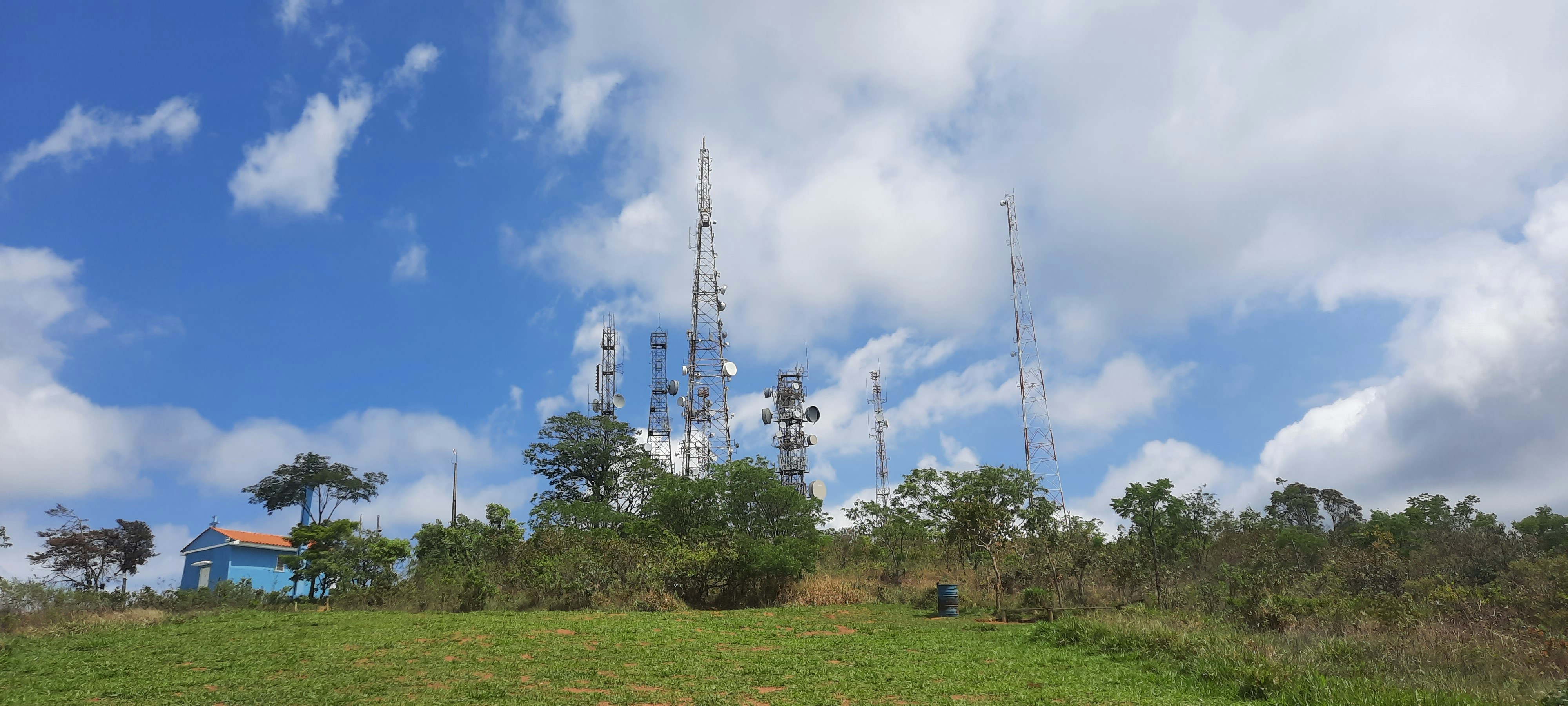The telecommunications sector in India has witnessed rapid developments in recent years, driven predominantly by innovative technology and competitive market dynamics. A hallmark of this evolving landscape is Bharat Sanchar Nigam Limited’s (BSNL) new service offering, the Q-5G Fixed Wireless Access (FWA). Launched at an affordable price point starting from Rs 999, this service represents a significant leap forward in providing seamless high-speed internet connectivity to consumers across urban and rural regions.
BSNL’s Q-5G FWA aims to bridge the digital divide by leveraging the power of 5G technology. Unlike traditional broadband services, which often require extensive infrastructure such as cables and fiber optics, the Fixed Wireless Access service utilizes radio signals to deliver internet connectivity. This approach not only reduces installation complexities but also shortens the deployment timeframe. As 5G technology promises higher bandwidth and lower latency, the Q-5G FWA service is poised to enhance the customer experience significantly.
This launch comes at a critical juncture as the demand for reliable internet connectivity continues to surge, particularly in the context of remote work, online education, and digital entertainment. The introduction of BSNL’s Q-5G solution reflects a proactive strategy by the company to meet the growing expectations of consumers and businesses alike. Moreover, as public interest in high-speed internet intensifies, BSNL is positioned to cater to a broad audience seeking value-for-money solutions.
In essence, BSNL’s Q-5G FWA service is noteworthy not only for its technological capabilities but also for its potential impact on enhancing internet accessibility in India. The successful implementation of this service could serve as a benchmark for future innovations in the evolving telecom landscape, setting new standards for connectivity and consumer satisfaction.
Pricing and Speed Options Available
BSNL (Bharat Sanchar Nigam Limited) has introduced its Q-5G Fixed Wireless Access (FWA) plans, which are designed to cater to various user needs through competitive pricing and diverse speed options. The pricing structure comprises two primary plans: the first plan is offered at Rs 999, while the second plan is priced at Rs 1499. Each of these plans provides distinct internet speeds that align with the expectations of different user segments.
The initial offering, priced at Rs 999, provides users with a remarkable internet speed of up to 100 Mbps. This plan is particularly suitable for households or small businesses that require reliable connectivity for everyday tasks such as browsing, streaming, and online work. With this speed, users can enjoy seamless video calls, download large files relatively quickly, and stream high-definition content without frequent buffering, making it an attractive option for budget-conscious consumers.
On the other hand, the Rs 1499 plan significantly ramps up the internet experience by offering speeds of up to 300 Mbps. This higher-tier option is tailored for users with more intensive data needs, such as large families or professionals engaged in activities that demand robust connectivity. Users opting for this plan can expect enhanced performance for multiple devices operating simultaneously, high-definition streaming without interruptions, and faster upload/download times that significantly improve productivity.
In summary, BSNL’s Q-5G FWA plans provide a flexible pricing structure suited to various user requirements. With options starting at Rs 999 for 100 Mbps and extending to Rs 1499 for an impressive 300 Mbps, users can select the plan that best fits their internet usage patterns and budget constraints, ensuring a convenient and efficient online experience.
Unique Features of BSNL’s Q-5G FWA
BSNL’s Q-5G Fixed Wireless Access (FWA) service presents a myriad of unique features that set it apart from traditional broadband solutions. One of the most notable characteristics of this offering is its sim-less architecture, which eliminates the need for a physical SIM card to connect to the network. This innovation not only simplifies the installation process but also enhances the overall user experience by enabling immediate connectivity without the hassle often associated with SIM provisions.
Moreover, the Q-5G FWA leverages indigenous technology, underscoring BSNL’s commitment to promoting self-reliance in telecommunications. The use of homegrown technological advancements not only contributes to the robustness of the network but also aligns with national initiatives aimed at enhancing local manufacturing capabilities in the tech sector. This strategic move ensures that BSNL’s service can be tailored to suit the specific needs of Indian consumers, providing both dependable performance and cost-effective solutions.
A significant advantage of BSNL’s Q-5G FWA over conventional broadband services lies in its flexibility and scalability. The fixed wireless access technology allows for quicker deployment even in remote areas where laying down fiber optics could be challenging or cost-prohibitive. As a result, users in rural and underserved regions can now experience high-speed internet access that was previously unavailable.
Furthermore, the performance of Q-5G FWA is enhanced through the utilization of large bandwidths and advanced spectrum efficiency. These aspects enable BSNL to deliver faster data transmission speeds and greater reliability, ensuring customers can engage in demanding online activities such as streaming, gaming, and video conferencing without interruptions. Overall, the unique features of BSNL’s Q-5G FWA position it as a formidable alternative in the broadband market, promising enhanced connectivity and service quality for a diverse range of users.
Installation Process and Accessibility
The installation process for BSNL’s Q-5G Fixed Wireless Access (FWA) service is designed to be both straightforward and accessible, catering to a large number of users in the metropolitan area. With the self-installation gateway provided by BSNL, customers can set up their Q-5G service without requiring professional assistance. This approach empowers users to initiate their connection at their convenience and alleviate the downtime often associated with traditional installations.
A significant advantage of BSNL’s Q-5G service is its extensive reach. The organization has made the Q-5G network accessible to approximately 85% of households in Hyderabad, enhancing the possibility of adoption in many neighborhoods. This extensive reach contrasts sharply with traditional wired internet services, which often require extensive trenching or fibre pulls to connect homes. By utilizing a wireless infrastructure, the Q-5G service minimizes the need for excavation and the associated costs and complications, making it an attractive option for prospective users.
Moreover, the Q-5G fixed wireless service offers a rapid deployment time compared to conventional wired setups, as the infrastructure is environmentally friendly and incurs less operational disruption. Users can look forward to a hassle-free installation experience that can be completed in a matter of minutes, further increasing user accessibility. With the ease of installation and the high penetration rate in residential areas, BSNL’s Q-5G service marks a pivotal shift in how households can access high-speed internet, making connectivity more attainable for Mumbai’s residents.
Targeted Geographic Expansion and Future Plans
With the ongoing efforts to enhance its services, BSNL has outlined an ambitious plan for the geographic expansion of its Q-5G Fixed Wireless Access (FWA) service. The company currently focuses on several key pilot cities that have been identified as strategic locations for this service rollout. These cities include Bengaluru, Pondicherry, Visakhapatnam, Pune, Gwalior, and Chandigarh. Each of these urban centers has been chosen based on their demographics, existing network infrastructure, and the potential for growth in demand for high-speed internet connectivity.
As part of their expansion strategy, BSNL aims to implement the Q-5G FWA service in these targeted cities, with a structured timeline set to complete the rollout by September 2025. This timeline allows for adequate infrastructure development, testing phases, and adjustments based on initial market responses. The pilot program is structured to gather vital data and insights, which will inform the future scalability of the service, ensuring it aligns with users’ needs and expectations.
BSNL’s proactive approach showcases its commitment to increasing connectivity in India’s urban landscapes, focusing particularly on areas that exhibit substantial technological growth. Furthermore, the company is geared towards establishing a robust framework that supports rapid deployment while ensuring high-quality service standards. This expansion aims not only to enhance user experience but also to establish BSNL as a leading provider in the competitive telecommunications landscape, especially in regions that currently lack adequate high-speed internet access.
By leveraging the unique advantages of Q-5G technology within its FWA framework, BSNL is poised to bridge the digital divide and enhance the socio-economic landscape of these cities. In doing so, the telecom provider hopes to foster an environment ripe for future innovation and connectivity enhancement, thereby contributing to India’s broader digital transformation initiatives.
Commercial Fair Usage Policy (FUP) Considerations
As BSNL formally launches its Q-5G Fixed Wireless Access (FWA) plans, users will inevitably inquire about the applicability of a Fair Usage Policy (FUP). While specific details have yet to be provided, the general principles of an FUP are instructive for understanding how these plans may operate. In telecommunications, a Fair Usage Policy is designed to regulate and monitor the usage of data services to ensure that all customers have equitable access to network resources.
A typical FUP outlines a maximum data limit that users can consume within a billing cycle before certain actions are taken. These actions may include throttling internet speeds, imposing additional charges, or adjusting service quality. The intention behind such policies is to prevent network congestion, especially during peak times, ensuring that all subscribers can maintain satisfactory service levels. For BSNL’s Q-5G FWA plans, it is reasonable to anticipate that similar limitations will be established to maintain network integrity.
The impact of these policies on users can vary significantly. For occasional users who engage in light browsing, an FUP might not pose a significant challenge. However, for heavy data consumers—such as gamers, streamers, or those utilizing cloud services—the constraints might lead to a noticeable decline in service quality once the data threshold is crossed. Understanding the intricacies of FUP guidelines is crucial for users to make informed decisions about their internet plans.
Moreover, the elasticity of an FUP may be influenced by factors such as the geographical location of the subscriber and the overall network performance. Hence, potential customers should be encouraged to explore all available documentation pertaining to BSNL’s FWA service to better comprehend any FUP implications and strategize their data consumption effectively.
BSNL’s Competitive Positioning in the Telecom Market
India’s telecom industry has witnessed rapid evolution, characterized by fierce competition and ongoing technological advancements. Bharat Sanchar Nigam Limited (BSNL) has strategically positioned itself in this dynamic environment, particularly with its recent announcement of Q-5G Fixed Wireless Access (FWA) plans starting at an attractive price point of Rs 999. This launch comes ahead of competitors, including Vodafone Idea, which may provide BSNL with a crucial advantage in capturing market share and attracting new subscribers.
BSNL’s decision to introduce Q-5G FWA services marks a significant step toward strengthening its foothold in the telecom sector, which has historically faced challenges in customer acquisition compared to private players. By offering this innovative service before its rivals, BSNL not only showcases its commitment to advancing digital infrastructure but also sets the pace for competitive pricing strategies within the market. This proactive approach may contribute to enhancing the company’s appeal among urban and rural consumers who are increasingly seeking high-speed internet solutions at a reasonable cost.
Moreover, the timing of BSNL’s Q-5G rollout aligns with the government’s initiatives to increase digital connectivity across the country. As BSNL continues to leverage its extensive network infrastructure and government backing, it stands poised to capitalize on the unfulfilled demand for high-speed internet, particularly in underserved areas. The rollout of these services can potentially transform BSNL’s image from a traditional telecom player to a modern service provider catering to the evolving needs of its consumers.
As BSNL navigates this competitive landscape, it must continue to innovate and adapt its offerings to attract and retain subscribers. The successful implementation of the Q-5G FWA plans will play a pivotal role in shaping the company’s future growth trajectory and its ability to compete effectively with well-established private firms in the Indian telecom market.
Feedback Phase and Next Steps for Consumers
Following the recent soft launch of BSNL’s Q-5G Fixed Wireless Access (FWA) service, the feedback phase plays a crucial role in shaping the future of this emerging technology. This initial period allows consumers to experience the service while providing valuable insights to the company. Feedback from users can encompass a wide range of aspects, including network speed, reliability, connectivity issues, and overall satisfaction with the service. Such information is vital for BSNL to understand the strengths and weaknesses of the Q-5G service.
During this phase, BSNL is expected to actively encourage customers to share their experiences and report any challenges they encounter. The company has established multiple channels for user feedback, including dedicated customer service lines, online forums, and social media platforms. By fostering open communication, BSNL aims to engage current and prospective users, ensuring that everyone has a voice in shaping the service.
Additionally, BSNL is committed to using this feedback constructively to enhance the Q-5G service. The insights gathered may lead to improvements in network infrastructure, such as expanding coverage areas, optimizing data speeds, and resolving connectivity issues. It is likely that based on consumer suggestions, BSNL might implement new features or adjust pricing structures to better meet the needs of its user base. The goal is to create a seamless and efficient user experience that resonates well with customers.
As consumers navigate the feedback phase, their opinions will be instrumental in refining BSNL’s Q-5G offerings. In an era where telecommunications services must adapt rapidly to user expectations, participation in this feedback initiative is not merely beneficial; it is essential. Users are encouraged to share their thoughts candidly, contributing to the development of a reliable and innovative Q-5G service that aligns with their desires and requirements.
Conclusion: The Future of Connectivity with BSNL
As we navigate through an increasingly digital world, the significance of reliable internet connectivity cannot be overstated. BSNL’s launch of Q-5G Fixed Wireless Access (FWA) plans starting at Rs 999 signals a transformative shift in the telecommunications sector in India. With high-speed internet available at competitive pricing, BSNL aims to bridge the digital divide, making advanced connectivity accessible to a broader audience.
The Q-5G FWA initiative is expected to enhance user experiences by providing swift, stable, and efficient internet access. This service is particularly critical for rural and underserved regions, where traditional broadband infrastructure has often fallen short. By using cutting-edge 5G technology, BSNL can improve connectivity options, enabling users to leverage high-speed internet for various applications, such as remote education, telemedicine, and e-commerce, thereby supporting economic growth and digital literacy.
An essential factor to consider is the competitive landscape of the telecom market. BSNL’s pricing strategy not only makes it an attractive option for consumers but also prompts other telecom players to evaluate their offerings. Increased competition typically leads to improved services and pricing structures across the board, benefiting consumers in the long run. With the entry of Q-5G FWA into the fraught telecom environment, consumers can expect a more vibrant market with enhanced services catering to their needs.
Looking ahead, the future of connectivity in India appears promising with BSNL’s strategic initiatives. The potential for technological advancements and improved internet access holds the key to unlocking various socio-economic opportunities for individuals and businesses alike. By empowering consumers with better connectivity options, BSNL’s Q-5G FWA not only enriches lives but also elevates India’s position in the global digital economy.
Stay updated with the latest news from the telecom sector by following our channel, Tech News. Don’t forget to connect with us on Twitter, and Facebook for real-time updates and insights.




